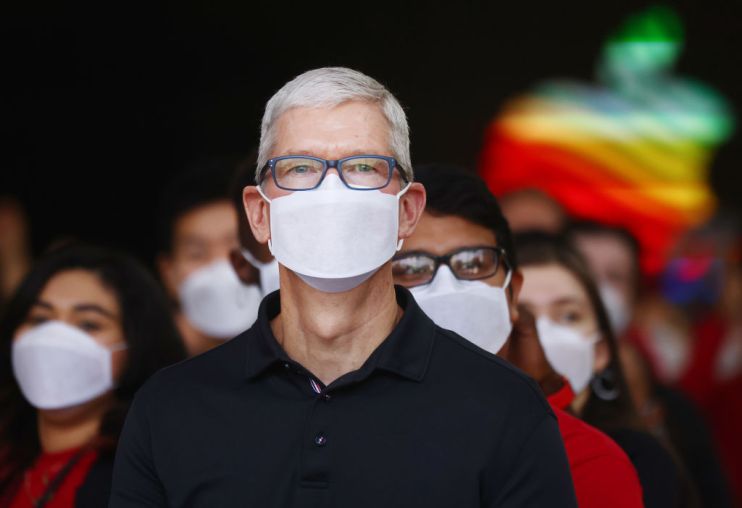Apple to become the world’s first $3tn company following reports of China secret deal

Apple could become the world’s first company to reach $3tn, following reports of a $275bn deal struck with China.
At today’s market opening, the company’s shares went up to $169.06, peaking at $171.05 – a 3.5 per cent increase compared with yesterday’s closing price of $165.29. Apple’s valuation consequently increased to $2.80tn, putting it in the pole position compared with competitors.
According to the Telegraph, the increase was caused by Morgan Stanley’s analysts putting a $200 share target on the Cupertino company, therefore raising its value to around $3.3tn.
Morgan Stanley’s valuation came on the same day Apple’s chief executive Tim Cook signed a $275bn deal to placate Beijing’s threat of hindering the company’s business strategy in the country, tech publication the Information reported.
First made in 2016, the five-year deal forced Cook to make concessions to the Chinese authorities, including allocating part of Apple’s investments in China into building new stores, R&D centres and renewable energy projects.
Cook also promised to use more components from Chinese suppliers as part of the deal, the Information wrote.
Commenting on the news, international marketing expert Allyson Stewart-Allen said Apple’s title does not come by accident.
“What has made Apple famous is its designs, usability and importantly its brand which seems to have so far avoided the scandals which have plagued Meta and Twitter,” she told City A.M.
Apple’s $3tn title comes a few weeks after the company reported its quarterly results, when it registered record revenues of $83.4bn. Despite the increase in revenues, shares plummeted because of Apple’s failure to live up to analyst expectations.
Talking to investors, Cook said supply chain issues would cost the firm around $6bn in the fourth quarter, with no exact date on when they would ease. “We’re doing everything we can do to get more (chips) and also everything we can do operationally to make sure we’re moving just as fast as possible,” he told Reuters on 28 October.
“We’re projecting very solid demand growth year over year. But we are also predicting that we’re going to be short of demand by larger than $6 billion,” he said.